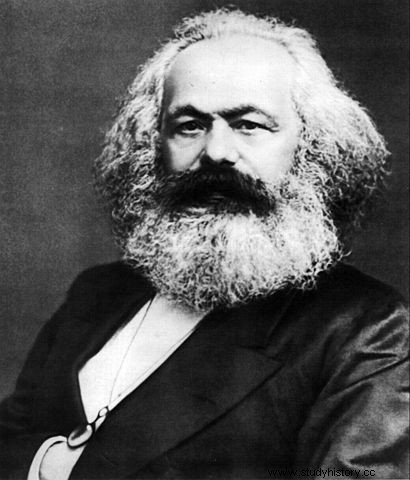Born in Trier in 1818, Karl Marx studied in Bonn and Berlin, where he presented his doctoral thesis in 1841. In 1942, having abandoned his plans for an academic career, he became editor of the opposition newspaper to the Prussian regime, the Rhenish Gazette . The newspaper was censored, and in 1843 Marx moved to Paris.
A critic of Proudhon's socialism, he wrote the Communist Party Manifesto in 1848. with his friend Engels. Chased from Paris, then from Berlin, he went into exile in London. In 1867 he published the first part of Capital . Marx's materialist thesis starts from economic and social reality. He bases his vision of history on an understanding of the capitalist system. According to him, the state would be the armed wing of the bourgeoisie (owner of the means of production) and would exercise a relationship of domination over the productive force (the proletariat):history can be understood through this “class struggle”. The capitalist system should collapse from its internal contradictions to make room for the advent of the proletariat. Only the revolution will overthrow bourgeois domination to make way for a communist, classless society.
Died in 1883, Karl Marx remains one of the theoreticians of scientific socialism and a reference of communist thought.
1818 - 1883

Status
Philosopher
Economist
Journalist
Theorist of scientific socialism and communism
